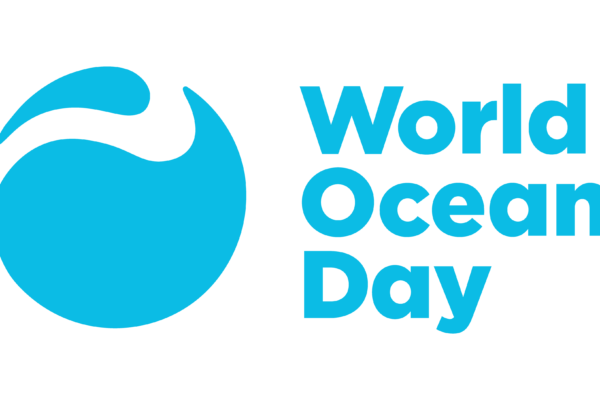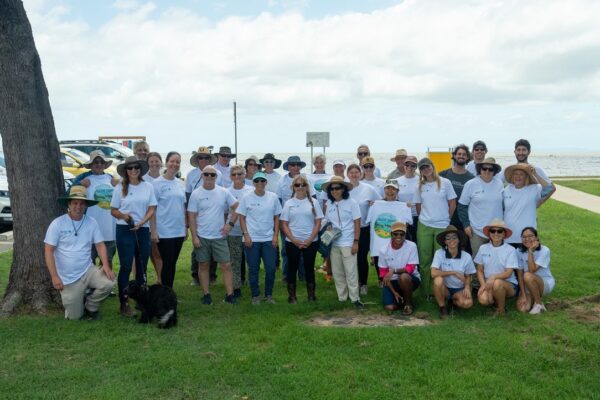Whenever we’ve presented this information, we’re often reminded by someone in the group of the old adage on which so many environmental outreach efforts have been based, an adage often stated as, “if only people knew more about the problem, they’d care more, and if only they cared more, they’d do more to be part of a solution.” So what exactly in our research suggests that this old adage needs to be revisited, if not rewritten? Here are four important factors we see at play.
People already support the conservation of the ocean and its animals, and are especially interested when visiting a ZAM
Our main stream of research, obtained through online intercepts over many years and funded primarily by NOAA, continues to remind us that Americans already care about the ocean and its animals. For example, we have found strong agreement (based on a scale where 1 equals total disagreement and 100 equals total agreement, a score of 70 or above indicates strong agreement with a statement) with statements such as:
“protecting the environment is important to the future health and well-being of the United States (73)”
and
“protecting the ocean is an important part of protecting the environment (70).”
Meanwhile, more recent data – obtained through a set of more than 3,400 onsite intercepts conducted with 12 of our partners last fall and funded primarily by an anonymous donor – tells us that when people come to visit an aquarium, for example, their interest in ocean issues spikes, with expressions of much higher agreement with statements such as
“I worry about the future health of the ocean and its animals.”
So where that old adage would suggest that outreach begin by, in essence, trying to convince people to care, the communications research tells us that at least when it comes to ZAMs reaching out on these issues, look instead for ways to tap into existing concern, especially when it is piqued by their visits.
People see themselves as part of the solution, rather than as part of the problem
At this point, that old adage would suggest that the best thing to do to increase engagement would be to pour on the information about the problems facing the ocean. And, yet again, our research would warn that this would be the wrong way to go.
The reason this would be a mistake is that people are much more likely to see themselves as part of the solution, rather than as part of the problem (even if the latter is also true!), something exemplified by the average agreements with the statements
“US citizens are positive contributors to ocean conservation (69)”
and
“I lead a green friendly lifestyle (68).”
So providing more and more information about the problems people present to the ocean, the research suggests, without doing so through the perspective of how to solve those, is in fact more likely to lead to disengagement (e.g. “This is someone else’s issue.”), or, even worse, dissonance (e.g. “They can’t be talking about me!”)
Instead, the research tells us to thank visitors for their concern, and suggest actions that they can take. On a related point, the research notes that it is much easier for people to see how an action can help a particular place or specific species than have an impact on the entirety of “the ocean.”
People are looking for ways to be, and be seen as “green-friendly”
Starting with ways people can help ties in nicely with another major finding from the research, that when it comes to “being green,” there is an ongoing gap between the demand and the supply of personal action steps. The same people who self identify as “green-friendly” often stumble when asked what exactly they’re doing. In response to an open-ended question about how they’re helping the environment, the most common answer was that the respondent had changed their light bulbs to CFLs or bought more local or organic foods. But it is then surprising to see that those responses were followed closely by, number three, “nothing,” and number four, “I don’t know.”
Based on the old adage, the implication was that people would need to have a clear understanding of the action before taking it, sometimes summed up as, “If they don’t know how it works, they won’t do it.” The research, however, along with many real world examples (e.g. think Tylenol and fevers), calls this into question. The research suggests that people’s self interest in being green, and being seen as green, is likely to provide the most motivation for conservation action.
People not only expect and trust, but appreciate suggestions from ZAMs
The research adds that ZAMs are very well positioned to meet this demand, as people not only expect and trust, but appreciate suggestions as to how they can help conserve the ocean and its animals. People’s trust in ZAMs has been well documented in various public opinion studies, including our own as well as AZA’s “Why Zoos and Aquariums Matter.”
What is new is our finding, underscored in the recent visitor intercepts, that people see receipt of these suggestions as “part of a good visit.” In fact, less than 2% of those visitors surveyed disagreed with the idea of ZAMs suggesting solution steps, whereas in our broader research we found much more resistance to the idea of ZAMs “educating the public.”
So while the old adage would suggest that people need to learn about the problems, the research indicates that, especially in the context of a visit, they’re ready to take action, and are thankful for those suggestions as to how they can help in their daily lives (note that suggestions of financial donations, or political activism seem much less likely to resonate in this way for the reasons described above).
Is your institution suggesting actions that visitors can take to help conserve the ocean? What has been the response?
Help us help others in the community – if your institution is venturing into making conservation asks, or you’d like to work with us on testing some asks, contact us.




